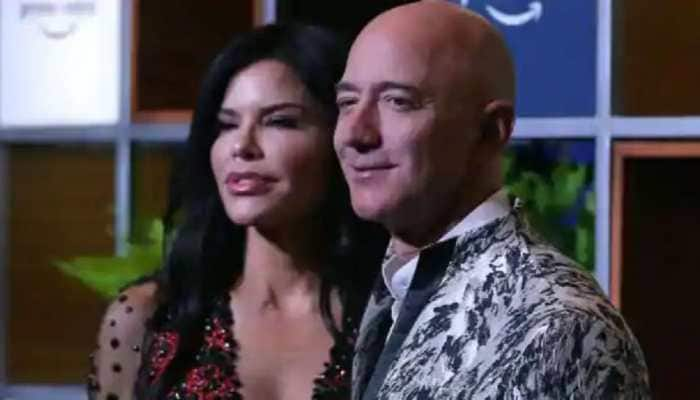PM Modi, Abe strike chord; Kyoto to help make Varanasi 'Smart City'
Indian Prime Minister Narendra Modi arrived on Saturday at Osaka International airport in Japan on his maiden bilateral visit outside the Indian subcontinent, which is expected to open new vistas in the bilateral ties and take the Strategic and Global Partnership to a higher level.
Trending Photos
Kyoto: Warmth, mutual admiration and convergent views marked the meeting between Prime Minister Narendra Modi and his Japanese counterpart Shinzo Abe Saturday as India hoped the two sides would strive to achieve in five years the unrealised potential of the past five decades.
The two countries signed a partnership agreement to turn the Hindu holy city of Varanasi, which forms part of Modi's parliamentary constituency, into a "smart heritage city". He later tweeted: "It was gladdening to witness the signing of MoU between Varanasi & Kyoto. Its yet another instance of furthering India-Japan cooperation."
Modi, who reached Kyoto Saturday at the beginning of his five-day visit to Japan, was accorded a warm welcome with the two prime ministers warmly hugging each other in a reflection of the warmth of their personal bonding. The two leaders then fed fish in line with the tradition in Japan.
Abe, who specially flew down to Kyoto to receive Modi, later hosted a traditional dinner for him at the Imperial Guest House in Kyoto.
Their discussion, lasting for over one and a half hours, was "exceptionally warm and friendly", a PMO statement said, adding that it was marked by a "great deal of mutual respect and admiration and convergence of views".
Within hours of Modi's arrival, a partnership agreement was inked between Varanasi, one of the oldest continuously inhabited cities in the world, and Kyoto, which was capital of Japan for over 1,000 years.
The partnership, focussing on how to preserve heritage while building smart cities, was signed between Kyoto Mayor Daisaku Kadokawa and India's Ambassador to Japan Deepa Gopalan Wadhwa, said ministry of external affairs spokesperson Syed Akbaruddin.
Kyoto had been included in Modi's schedule as it dovetails into his emphasis on rejuvenation of cities while preserving their cultural heritage.
During their dinner meeting, the two prime ministers spoke about the ancient cultural and religious links between the countries which were not known widely, noting the start of Modi's visit from Kyoto highlighted the spiritual foundations of their relations.
Describing Japan as "one of India's closest and most important partners", Modi expressed his own admiration for it and his high hopes from their relationship.
Abe spoke "with great enthusiasm and strong conviction" about India and the importance of bilateral relations for Japan and the region.
Expressing confidence that India's economic transformation would gather strong momentum under Modi, he also said an economically resurgent India would be of great strategic importance to the region and the world, and an inspiration for democratic forces around the world.
The discussions covered economic issues and the opportunities that both countries had to seize - presented by their respective strong political mandates - to inject new momentum and energy in their economies.
The two leaders also had an "extensive and candid" exchange of views on regional and global developments and saw "in their remarkable convergence of views a great opportunity to work together for peace, stability and prosperity in Asia and the world".
Modi, who is making his first bilateral sojourn outside South Asia since he took office in May, observed that the India-Japan relationship was far below potential and expressed the hope that the two sides would strive to achieve in five years the unrealised potential of five decades.
He also said that a strong India-Japan partnership was important not just for the economic benefits to the two countries, but even more as a force of good for the region and the world.
He also mentioned his plan to visit Centre for iPS Cell Research in Kyoto as part of his desire to seek advanced solutions through stem cell research for health challenges in India.
Modi is scheduled to Sunday visit Toji temple, which symbolises the confluence of Indian and Japanese civilisational commonalities regarding Buddhism.From Kyoto, he travels to Tokyo, where he would discuss with Abe the roadmap for the mutual global and strategic partnership in the years ahead.
India is keen on early conclusion of the civil nuclear agreement with Japan and negotiations are also underway for sale of Japan's US-2 amphibious aircraft. India has also evinced interest in bullet trains.
Stay informed on all the latest news, real-time breaking news updates, and follow all the important headlines in india news and world News on Zee News.
Live Tv







)
)
)
)
)
)
)
)
)
)
